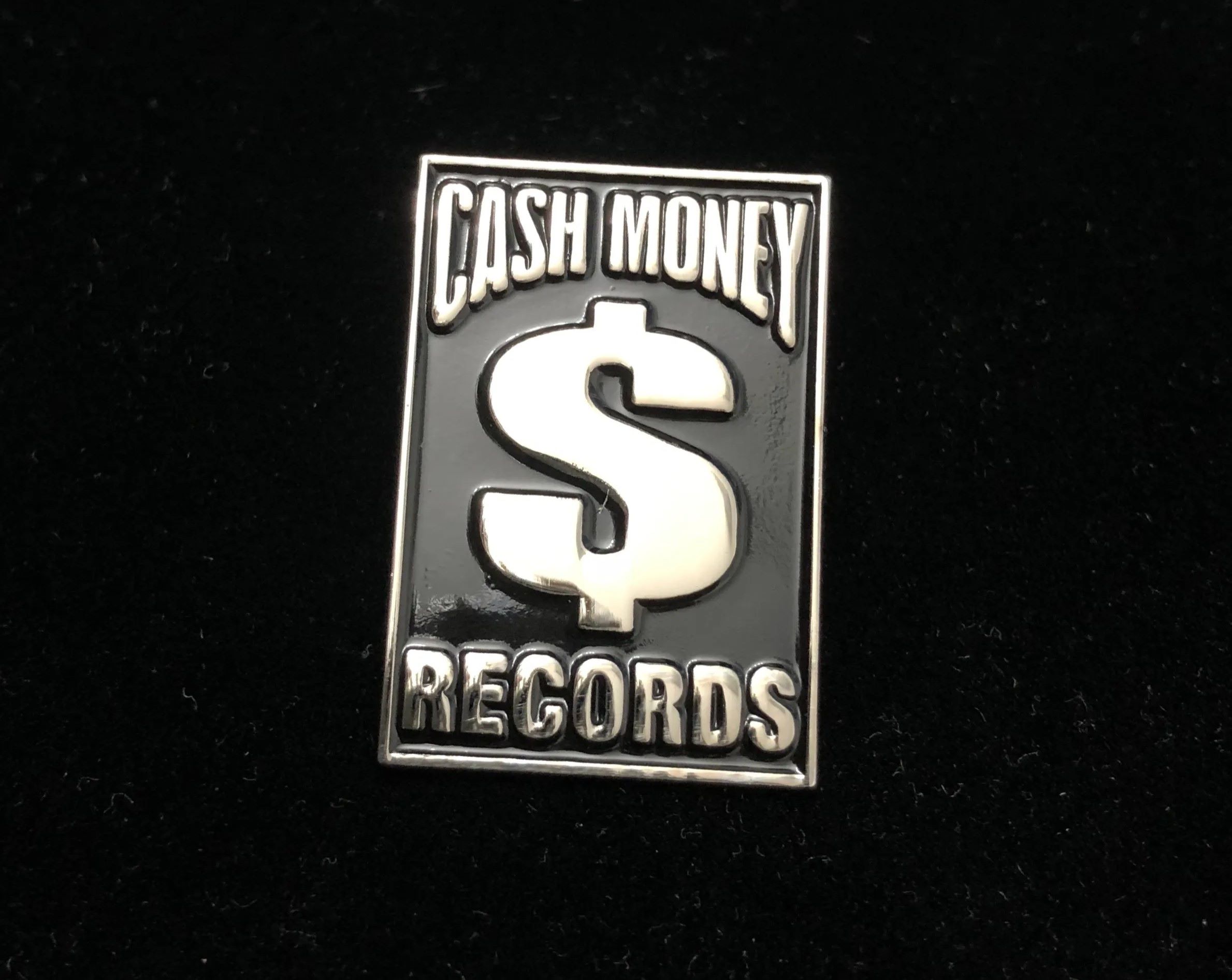Home>Production & Technology>Record Label>How To Start A Record Label & Make Money With Your Music


Record Label
How To Start A Record Label & Make Money With Your Music
Published: January 24, 2024
Learn how to start a record label and make money with your music. Discover the essential steps and strategies to succeed in the music industry.
(Many of the links in this article redirect to a specific reviewed product. Your purchase of these products through affiliate links helps to generate commission for AudioLover.com, at no extra cost. Learn more)
Table of Contents
- Introduction
- Step 1: Define Your Vision and Goals
- Step 2: Understand the Music Industry
- Step 3: Build a Solid Business Plan
- Step 4: Secure Funding and Resources
- Step 5: Legal Considerations and Licensing
- Step 6: Finding and Signing Talent
- Step 7: Recording and Producing Music
- Step 8: Marketing and Promotion Strategies
- Step 9: Distribution and Sales
- Step 10: Building a Strong Network
- Step 11: Managing Finances and Profitability
- Step 12: Adapt and Stay Relevant
- Conclusion
Introduction
Starting a record label can be an exciting and rewarding venture for music enthusiasts who are passionate about nurturing talent and contributing to the vibrant music industry. A record label serves as a platform for artists to showcase their artistry, reach a wider audience, and ultimately make a living from their music.
However, launching and running a successful record label requires more than just a love for music. It takes careful planning, strategic decision-making, and a deep understanding of the music industry. Whether you’re an aspiring entrepreneur or a musician looking to take control of your own career, this guide will help you navigate the process of starting and running a record label.
In this article, we will delve into the essential steps involved in starting a record label and making money with your music. From defining your vision and goals to understanding the legalities and marketing strategies, we will cover everything you need to know to build a successful record label.
Starting a record label is not without its challenges, but with the right knowledge and dedication, it can be a fulfilling and profitable venture. So, if you’re ready to embark on this exciting journey, let’s dive into the first step: defining your vision and goals.
Step 1: Define Your Vision and Goals
Before diving into the practical aspects of starting a record label, it’s crucial to take the time to define your vision and goals. What is your ultimate objective with your record label? Are you looking to promote a specific genre of music or work with a diverse range of artists? Do you want to focus on developing new talent or signing established artists?
Defining your vision will help shape the direction of your record label and guide your decision-making process. It will also help you establish your unique brand and identity in the music industry. Take the time to brainstorm and clarify your vision and values, as they will shape your label’s mission statement and overall strategy.
Once you have a clear vision in mind, it’s time to set concrete and achievable goals. What do you want to accomplish with your record label in the short term and long term? Are you aiming to release a certain number of albums per year, achieve a specific number of sales, or secure partnerships with major distributors? Setting measurable goals will help you stay focused, motivated, and track your progress along the way.
It’s important to note that your vision and goals may evolve over time as your record label grows and adapts to the ever-changing music industry. Embrace the flexibility to adjust your goals accordingly and stay open to new opportunities that may arise.
By having a clear vision and goals for your record label, you will have a solid foundation upon which to build your business plan and make strategic decisions. This clarity of purpose will also attract like-minded artists and industry professionals who resonate with your vision, increasing the chances of successful collaborations and partnerships.
Now that you have defined your vision and goals, it’s time to delve deeper into the inner workings of the music industry. In the next step, we will explore the importance of understanding the music industry and its various components.
Step 2: Understand the Music Industry
As a record label owner, it’s crucial to have a comprehensive understanding of the music industry. This knowledge will not only help you navigate the landscape more effectively but also make informed decisions that can contribute to the success of your record label.
Begin by familiarizing yourself with the different segments of the music industry, including recording, publishing, distribution, and live performances. Understand the roles and responsibilities of various stakeholders such as artists, managers, agents, publishers, and distributors. Gain insights into the trends, challenges, and opportunities that exist within each sector.
Keep a close eye on the evolution of the music industry, as it is constantly changing with advancements in technology and shifts in consumer behavior. Stay up to date with the latest digital trends, streaming platforms, social media strategies, and emerging business models. This knowledge will help you adapt your label’s approach to align with current industry practices and maximize your chances of success.
Networking with industry professionals, attending conferences, and joining relevant music organizations can provide valuable insights and connections. Engage with other record labels, music managers, and artists to build relationships and learn from their experiences. Collaborate with experts in areas such as marketing, PR, and legal to gain a holistic understanding of the industry’s intricacies.
Understanding the music industry also involves recognizing and adapting to the cultural and artistic trends that can shape the success of your record label. Stay in touch with different music genres, subcultures, and emerging artists to identify potential talent and capitalize on emerging trends.
By developing a deep understanding of the music industry, you will be equipped to identify opportunities, navigate challenges, and make informed decisions for your record label. This knowledge will serve as the foundation for building a solid business plan, which we will explore in the next step.
Step 3: Build a Solid Business Plan
A strong and well-thought-out business plan is essential for the success of your record label. It serves as a roadmap that outlines your vision, strategy, and financial projections. A comprehensive business plan will not only help you stay organized but also attract potential investors and secure financing for your label.
Start by outlining the key components of your business plan, including an executive summary, company description, market analysis, marketing and promotion strategies, operational plan, and financial projections. Each section should be detailed and supported by thorough research and analysis.
In the executive summary, provide a concise overview of your record label, including its mission, vision, goals, and unique value proposition. This section should give a compelling summary of your business plan and entice readers to delve deeper.
The company description should provide a more detailed overview of your record label, including its history, legal structure, management team, and any notable achievements or partnerships. This section should highlight your label’s unique selling points and competitive advantages.
Conduct a thorough market analysis to understand your target audience, competitors, and industry trends. Identify your target demographic, their music preferences, and consumption habits. Analyze your competitors’ strengths and weaknesses, and identify opportunities to differentiate your label in the market.
Your marketing and promotion strategies should outline how you plan to attract and engage with your target audience. Include both online and offline marketing tactics, such as social media campaigns, influencer collaborations, live events, and traditional media outreach. Detail your budget, timelines, and metrics for evaluating the effectiveness of your marketing efforts.
The operational plan should detail the day-to-day operations of your record label, including artist acquisition and management, recording and production processes, distribution strategies, and partnerships with other entities in the music industry. Outline your workflows, timelines, and resource allocation to ensure smooth operations throughout the various stages of releasing music.
The financial projections section is crucial for showcasing the potential profitability and sustainability of your record label. Include revenue forecasts, expense projections, and cash flow analysis. Provide detailed information about your funding sources, such as investments, loans, or self-funding, and explain how you plan to achieve profitability.
A solid business plan demonstrates your commitment, professionalism, and strategic thinking to potential investors, partners, and artists. Regularly review and update your business plan as your record label evolves and adjusts to the ever-changing music industry landscape.
Now that you have a solid business plan in place, the next step is to secure the necessary funding and resources to bring your record label to life, which we will explore in detail in the next step.
Step 4: Secure Funding and Resources
Securing adequate funding and resources is vital for the success and sustainability of your record label. While starting a record label can be a lucrative venture, it often requires a significant financial investment to cover expenses such as artist contracts, recording equipment, marketing campaigns, and distribution costs.
There are several sources of funding you can explore, depending on your financial situation and goals. Here are some options to consider:
- Personal savings: Utilize your personal savings to fund the initial stages of your record label. This offers flexibility and allows you to have full control over your finances.
- Investors: Seek out potential investors who are interested in the music industry and share your vision. Prepare a compelling pitch that outlines your business plan, potential for growth, and expected return on investment.
- Bank loans: Approach financial institutions for business loans. Be prepared to present a solid business plan and demonstrate your ability to repay the loan within the agreed terms.
- Crowdfunding: Consider crowdfunding platforms to raise funds from a larger audience. Offer unique rewards or incentives to attract donors.
- Grants and sponsorships: Research grants and sponsorship opportunities that are available specifically for the music industry. This might include government grants, corporate sponsorships, or music-specific foundations.
In addition to funding, securing resources is equally important. This includes finding talented individuals and building a strong team to support your record label’s operations. Consider hiring experienced professionals in areas such as artist management, marketing, branding, and legal services.
Networking within the music industry and attending industry events can help you connect with industry experts and potential collaborators. Building relationships with established musicians, producers, and engineers can provide valuable guidance and access to resources that can boost your record label’s success.
Remember, securing funding and resources may take time and perseverance. It’s important to have a clear plan, a strong network, and a compelling pitch to attract potential investors and partners.
Once you have secured the necessary funding and resources, it’s crucial to consider the legal considerations and licensing necessary to ensure that your record label operates within the boundaries of the law. We will explore this in the next step.
Step 5: Legal Considerations and Licensing
When starting a record label, it’s crucial to ensure that you comply with all legal requirements and obtain the necessary licenses and permissions. This step is essential to protect your label and its artists, avoid legal troubles, and maintain a professional and ethical operation.
Here are some key legal considerations and licensing aspects to keep in mind:
- Business Structure: Decide on the legal structure of your record label, whether it’s a sole proprietorship, partnership, limited liability company (LLC), or corporation. Consult with a legal professional to determine the most appropriate structure for your specific situation.
- Trademarks and Copyrights: Protect your record label’s name, logo, and other intellectual property by registering for trademarks. Ensure that you have the necessary copyrights for the music you release and consider registering them with relevant copyright organizations.
- Artist Contracts: Draft clear and comprehensive artist contracts that outline the rights and obligations of both parties. This includes terms related to recording, publishing, royalties, and distribution. Consult with an entertainment lawyer to ensure that your contracts are legally sound and protect the interests of all parties involved.
- Sample Clearances: If you plan to use samples from existing songs in your music releases, it’s essential to obtain proper sample clearances. Failure to do so can result in legal consequences and financial liabilities.
- Music Licensing: Ensure that you adhere to the necessary music licensing requirements for the music you release. This includes obtaining mechanical licenses for reproducing copyrighted compositions and performance licenses for public performances.
- Distribution Agreements: If you plan to work with digital distributors or physical distribution companies, carefully review and negotiate distribution agreements. Ensure that the terms are fair, transparent, and align with your label’s objectives.
Working with an entertainment lawyer who specializes in the music industry is highly recommended. They can guide you through the legal intricacies, review contracts, assist with trademark registration, and ensure that your record label is compliant with all applicable laws and regulations.
By addressing the legal considerations and obtaining the necessary licenses and permissions, you can set a strong foundation for your record label’s success and protect the rights and interests of your artists and collaborators.
After ensuring that your label is legally sound, the next step is to find and sign talented artists. We will explore this crucial step in the next section.
Step 6: Finding and Signing Talent
Finding and signing talented artists is at the core of a successful record label. Building a roster of exceptional musicians will not only define your label’s identity but also determine its long-term success. Here are some steps to help you in this process:
- Research and Attend Live Performances: Stay active in the music scene and attend local shows, open mic nights, and music festivals. Take note of standout performers and do further research on their music and potential for collaboration.
- Utilize Online Platforms: Platforms like SoundCloud, YouTube, and social media can be great resources for discovering new artists. Explore different genres and use search tools and algorithms to find talented artists with potential.
- Network within the Music Community: Attend industry events, join music groups, and connect with music producers, managers, agents, and other industry professionals. Networking can help you gain access to hidden talent and high-potential artists.
- Establish Relationships: Building relationships with artists takes time and effort. Attend their shows, engage with their social media platforms, and show genuine interest in their music. Building trust and rapport will increase the chances of artists considering your label as a potential partner.
- Conduct Auditions and Demos: Request demos, EPs, or albums from artists you are interested in. Assess their technical skill, songwriting capabilities, and market potential. Consider holding auditions or inviting artists to showcase their talent in person.
- Consider a Development Strategy: Some artists may require development and guidance before they are ready for a record deal. Consider offering artist development programs or signing artists to short-term contracts to help nurture their talent and create a mutually beneficial relationship.
- Negotiate Fair and Transparent Contracts: Once you have identified potential talent and established a relationship, negotiate contracts that benefit both parties. Ensure that the terms are fair, transparent, and align with your label’s financial capabilities and long-term vision.
Remember, signing talented artists goes beyond their musical abilities. Consider their work ethic, commitment to their craft, and compatibility with your label’s vision and values. Building a roster of diverse and talented musicians will provide your label with the necessary variety and artistic depth.
Once you have successfully signed talented artists to your label, the next step is to guide them through the recording and production process. In the next section, we will explore this essential step.
Step 7: Recording and Producing Music
Recording and producing high-quality music is a vital step in the success of your record label. This is where the creative vision and talent of your artists come to life. Here are some key considerations and steps to ensure a smooth and successful recording and production process:
- Pre-production Planning: Work closely with your artists to plan the recording sessions in advance. Discuss the overall vision, song selection, and desired sound for the project. Help them refine their songs and arrangements, if necessary.
- Selecting a Recording Studio: Choose a recording studio that suits your budget, technical requirements, and the desired aesthetic of your artist’s music. Consider factors such as the studio’s equipment, acoustics, and the experience and expertise of the engineers.
- Booking Session Musicians: Determine if your project requires any additional session musicians to enhance the recordings. Hire skilled musicians who can contribute to the overall sound and vibe of the songs.
- Recording and Tracking: During the recording sessions, ensure that the artists feel comfortable and supported. Provide guidance and feedback while allowing them the artistic freedom to express themselves. Encourage multiple takes to capture the best performances.
- Editing and Mixing: Once the main recordings are complete, hire a knowledgeable engineer to edit and mix the tracks. This process involves fine-tuning the performances, adjusting levels, adding effects, and creating a cohesive and balanced sonic experience.
- Mastering: Consider sending the mixed tracks to a professional mastering engineer who can polish the final product. Mastering helps to optimize the overall sound and loudness of the music, ensuring it translates well across various playback systems.
- Artwork and Packaging: Don’t overlook the importance of visually appealing artwork and packaging. Work with talented graphic designers to create eye-catching album covers, liner notes, and any other supplementary materials.
- Quality Control and Feedback: Listen to the final product with a critical ear and ensure that it meets your label’s standards of quality. Seek feedback from trusted ears, including industry professionals and fellow artists, to gain different perspectives.
- Digital Distribution: Explore digital distribution platforms to make the music available on streaming services and digital stores. Platforms like TuneCore, DistroKid, and CD Baby offer easy and cost-effective ways to distribute your artists’ music.
Remember that the recording and production process should strike a balance between technical excellence and maintaining the artistic integrity of the music. Effective communication, collaboration, and a supportive environment are key to creating exceptional recordings that give your artists the best chance for success.
With the music recorded and produced, the next step is to develop effective marketing and promotion strategies to help your artists gain exposure and build a fan base. We will explore this step in detail in the next section.
Step 8: Marketing and Promotion Strategies
Effective marketing and promotion strategies are essential to getting your artists’ music heard and building a loyal fan base. Here are some key strategies to consider when developing your marketing and promotion plan:
- Create a Compelling Brand: Develop a strong and distinctive brand identity for your record label. This includes a well-designed logo, consistent visual aesthetics, and a compelling narrative that connects with your target audience.
- Build an Online Presence: Establish an online presence for your record label through a professional website and active social media profiles. Share engaging content, updates about your artists, and behind-the-scenes insights to keep your audience engaged.
- Develop a Content Marketing Strategy: Create valuable and engaging content related to your artists and the music industry. This can include blog posts, interviews, music videos, behind-the-scenes footage, and live performances. Share this content on your website and social media channels to attract and engage with your target audience.
- Utilize Influencer Marketing: Collaborate with influential figures in the music industry, including bloggers, music journalists, playlist curators, and social media influencers. Seek opportunities for cross-promotion and endorsements to reach a wider audience.
- Engage with Fan Communities: Interact with fans by responding to comments, organizing contests, and sharing user-generated content. Build a sense of community, and encourage fans to become brand ambassadors for your record label and artists.
- Invest in Live Performances: Organize live performances, concerts, and tours for your artists. Partner with venues and promoters to secure meaningful opportunities for exposure and connect with fans on a personal level.
- Secure Media Coverage: Pitch your artists’ music to music blogs, magazines, radio stations, and online platforms. Write compelling press releases, develop relationships with journalists, and offer exclusive content or interviews to attract media attention.
- Utilize Streaming Platforms: Leverage the power of streaming platforms such as Spotify, Apple Music, and YouTube. Create artist profiles, curate playlists, and engage with fans on these platforms to increase visibility and drive streams.
- Network with Industry Professionals: Attend music industry events, conferences, and networking sessions to connect with industry professionals. Establish relationships with music supervisors, A&R representatives, and booking agents who can help increase your artists’ exposure and open doors to new opportunities.
- Monitor and Measure Results: Continuously monitor the effectiveness of your marketing strategies through analytics and metrics. Adapt and refine your approach based on data and insights to ensure maximum impact and return on investment.
Remember, marketing and promotion require consistent effort and a strong understanding of your target audience. Tailor your strategies to match the unique characteristics of your artists and their music, and stay adaptable in an ever-evolving music industry landscape.
With your marketing and promotion strategies in place, the next step is to focus on the distribution and sales of your artists’ music. We will delve into this crucial step in the next section.
Step 9: Distribution and Sales
Ensuring proper distribution and maximizing sales is crucial for the success of your record label. Effective distribution allows your artists’ music to reach a wider audience and generate revenue. Here are some key steps to consider when it comes to distribution and sales:
- Choose the Right Distribution Strategy: Determine the distribution strategy that aligns with your label’s objectives and budget. Options include working with digital music distributors, physical distribution companies, or a combination of both.
- Digital Distribution: Partner with reputable digital distribution platforms such as TuneCore, DistroKid, or CD Baby to distribute your artists’ music to popular streaming services and digital stores. Ensure proper metadata, high-quality audio files, and compelling album artwork for each release.
- Physical Distribution: If you plan to release physical copies of your artists’ music, work with established physical distributors or consider self-distribution. Determine the best formats for physical releases (CDs, vinyl, etc.) based on your target audience and market demand.
- Online Music Stores: Make sure your artists’ music is available on popular online music stores such as iTunes, Amazon Music, and Bandcamp. Optimize the artist profiles and listings to enhance discoverability and attract potential buyers.
- Merchandise: Consider offering artist merchandise such as t-shirts, posters, and other branded items. This can be sold through online platforms, at concerts, or through partnerships with retail stores. Merchandise sales can supplement your revenue and increase fan engagement.
- Direct-to-Fan Sales: Cultivate a strong connection with your artists’ fan base by offering direct-to-fan sales options. This can include selling music directly through the artist’s website or using platforms like Bandcamp that allow for direct sales and fan engagement.
- Sync Licensing: Explore opportunities for sync licensing, where your artists’ music is used in film, TV shows, commercials, or video games. Register with sync licensing agencies and actively pitch your artists’ music for licensing placements. These placements can provide exposure and generate additional revenue.
- Retail and Event Partnerships: Collaborate with retail stores, independent record shops, and event organizers to promote and sell your artists’ music. Consider partnering with local businesses for in-store performances or exclusive album releases to attract customers.
- Sales Analytics and Reporting: Utilize analytics tools to monitor sales, streaming metrics, and audience engagement. Analyze the data to identify trends, target marketing efforts effectively, and make informed business decisions for your artists and label.
Remember, distribution and sales are ongoing efforts. Continuously evaluate and refine your strategies based on market trends, consumer preferences, and audience feedback. Stay adaptable and seek opportunities to expand distribution channels and develop new revenue streams.
As you focus on distribution and sales, it’s also crucial to build a strong network of industry professionals who can support the growth of your label. We will explore this step in detail in the next section.
Step 10: Building a Strong Network
Building a strong network of industry professionals is fundamental to the success and growth of your record label. The music industry thrives on collaboration, connections, and partnerships. Here are some key steps to help you build a robust network:
- Attend Music Industry Events: Attend conferences, festivals, trade shows, and networking events specific to the music industry. These gatherings provide valuable opportunities to meet industry professionals, artists, and potential collaborators.
- Engage with Music Communities: Join online music communities, forums, and social media groups where professionals in the industry connect and exchange knowledge. Engage in discussions, share insights, and build relationships with like-minded individuals.
- Connect with Artists and Industry Professionals: Reach out to artists, managers, producers, promoters, and A&R representatives whose work aligns with your label’s vision. Attend their shows, initiate conversations, and develop authentic relationships based on shared interests.
- Collaborate with other Labels: Explore partnerships and collaborations with other record labels. This could involve joint releases, co-promotions, or sharing resources and contacts. Collaboration can strengthen your position in the industry and open doors to new opportunities.
- Build Relationships with Music Journalists and Bloggers: Engage with music journalists, bloggers, and influencers who cover your genre or niche. Offer exclusive content, interviews, or early access to releases to foster relationships and gain media exposure.
- Work with Music Supervisors and Sync Licensing Agencies: Reach out to music supervisors and sync licensing agencies who specialize in placing music in films, TV shows, and commercials. Collaborating with these professionals can lead to valuable licensing opportunities and increased exposure for your artists.
- Engage with Industry Organizations: Join industry organizations such as trade associations, music festivals, and artist management forums. Participate in their events, workshops, and panels to gain insights, make connections, and contribute to the music community.
- Support Local Music Scenes: Get involved in your local music scene by attending shows, supporting local artists, and collaborating with venue owners and promoters. Building relationships within your community can lead to valuable connections and opportunities.
- Maintain Professionalism and Integrity: Treat everyone you encounter in the music industry with respect and professionalism. Nurture authentic and mutually beneficial relationships based on trust, reliability, and a genuine passion for music.
- Follow Up and Stay Connected: After meeting industry professionals or potential collaborators, maintain regular communication and follow up with them. Keep them updated on your label’s progress and explore ways to support each other’s endeavors.
Remember, building a strong network takes time and effort. Cultivating meaningful relationships and connections can lead to invaluable guidance, support, and opportunities for your label and artists.
As you solidify your network, it’s important to manage your label’s finances effectively. In the next section, we will explore strategies for managing finances and ensuring profitability.
Step 11: Managing Finances and Profitability
Managing finances effectively is crucial for the long-term success and profitability of your record label. As a business owner, it’s important to establish sound financial practices to ensure that your label remains sustainable and achieves its financial goals. Here are some key strategies to consider:
- Create a Budget: Develop a comprehensive budget that outlines your revenue sources, expenses, and financial goals. Include expenses such as artist signings, recording costs, marketing campaigns, distribution fees, and operational expenses. Regularly review and update your budget to reflect changes and adjust accordingly.
- Monitor Cash Flow: Keep a close eye on your cash flow to ensure that you have enough funds to cover expenses and invest in future projects. Maintain an organized system for tracking income and expenses, and make informed financial decisions based on accurate and up-to-date information.
- Track Royalties and Payments: Monitor and collect all royalties and income generated from your artists’ music. Establish systems and processes to ensure accurate tracking of streaming revenue, sales income, and any other sources of income. Regularly reconcile statements and ensure that artists receive their fair share promptly.
- Minimize Costs: Look for opportunities to minimize costs without compromising quality. Negotiate fees with service providers, explore cost-effective marketing strategies, and find solutions to streamline operations and reduce overhead expenses.
- Seek Multiple Revenue Streams: Explore various revenue streams beyond music sales, such as merchandise sales, streaming royalties, sync licensing, and brand partnerships. Diversifying revenue streams can provide stability and increase profitability.
- Invest Wisely: Prioritize investments that align with your label’s goals and financial capabilities. Whether it’s artist development, marketing campaigns, or expanding distribution channels, make informed decisions based on thorough research, analysis, and projected returns.
- Regular Financial Analysis: Conduct regular financial analysis to evaluate the financial performance of your label. Monitor key performance indicators (KPIs) such as sales growth, return on investment, and profit margins. This will help you identify areas for improvement and make data-driven decisions.
- Engage a Financial Professional: Consider working with a financial professional or accountant who specializes in the music industry. They can provide guidance on financial management, tax planning, and help navigate the complexities of royalty calculations and music industry accounting practices.
- Prepare for the Unexpected: Build a financial cushion to safeguard against unforeseen circumstances or downturns in the music industry. Establish an emergency fund that can cover essential expenses in case of unexpected challenges or expenses.
- Regularly Review and Adjust: Continuously review and evaluate your financial strategies and performance. Regularly assess the effectiveness of your revenue-generating activities, cost-saving initiatives, and overall financial health. Adjust your strategies and goals as necessary to maintain profitability and ensure the long-term success of your record label.
Remember, effective financial management is key to sustaining your record label and supporting the growth and success of your artists. By maintaining sound financial practices, you can navigate the challenges of the music industry and create a solid foundation for profitability.
As the music industry continues to evolve, it’s important to adapt and stay relevant. This will be explored in the final step, Step 12.
Step 12: Adapt and Stay Relevant
In the ever-changing music industry, it’s crucial for your record label to adapt and stay relevant in order to thrive. By remaining flexible, embracing innovation, and staying attuned to industry trends, you can position your label for continued success. Here are some key strategies to help you adapt and stay relevant:
- Stay Up to Date: Keep a pulse on the latest trends, technologies, and consumer behaviors in the music industry. Stay informed through industry publications, blogs, podcasts, and attending conferences or webinars.
- Embrace Digital Platforms: Utilize digital platforms and streaming services to reach a wider audience. Develop a strong online presence, optimize your artists’ profiles, and engage with fans on social media platforms.
- Explore New Revenue Streams: Continuously explore new revenue streams beyond traditional music sales. Consider opportunities in merchandise, fan experiences, sync licensing, brand partnerships, and live performances.
- Adopt Innovative Marketing Strategies: Embrace digital marketing strategies such as influencer marketing, viral content creation, and interactive experiences. Experiment with creative campaigns to engage with fans and attract new audiences.
- Invest in Data Analysis: Utilize data analytics to gain insights into fan demographics, listening habits, and preferences. Leverage this information to inform your decision-making process and tailor your strategies to the specific needs of your audience.
- Nurture Artist Development: Stay dedicated to nurturing and developing your artists. Provide them with support, resources, and guidance to evolve their craft and stay relevant in a competitive industry.
- Collaborate and Stay Open to Partnerships: Foster collaborations with artists, labels, and industry professionals. Seek out opportunities for joint ventures, co-marketing campaigns, and strategic partnerships that can provide mutual benefits and expand your reach.
- Stay Culturally Engaged: Keep an eye on cultural shifts and changing musical tastes. Stay connected to new genres, subcultures, and emerging artists to ensure your label remains culturally relevant and in touch with the evolving music landscape.
- Continuously Innovate: Embrace innovation and be open to adopting new technologies and business models. Explore opportunities in live streaming, virtual concerts, augmented reality (AR), and other emerging platforms that can enhance fan engagement and create unique experiences.
- Listen to Your Audience: Pay attention to feedback from fans, industry professionals, and artists. Actively engage with your audience and use their input to refine your strategies and offerings.
Remember, staying relevant requires a commitment to lifelong learning, adaptability, and a willingness to embrace change. By adapting to the evolving music industry and staying relevant, your record label can thrive in an ever-changing landscape and continue to make a lasting impact on the music scene.
Congratulations on completing all the steps to start and run a record label! By following these guidelines, you are well-equipped to navigate the exciting and challenging world of the music industry. Good luck on your journey to success!
Conclusion
Starting and running a record label is a thrilling and fulfilling venture for music enthusiasts and entrepreneurs alike. By following the comprehensive steps outlined in this guide, you now have the knowledge and insights to embark on this exciting journey with confidence.
From defining your vision and goals to understanding the music industry, building a solid business plan, securing funding and resources, navigating legal considerations, finding and signing talented artists, recording and producing music, implementing marketing and promotion strategies, managing finances, building a strong network, adapting to changes, and staying relevant, each step plays a vital role in establishing and growing a successful record label.
Remember that the music industry is constantly evolving. It demands innovation, adaptability, and a dedication to building meaningful relationships with artists, industry professionals, and fans. Stay open to new opportunities, embrace technology, and continually refine your strategies to ensure your record label remains competitive and sustainable in an ever-changing landscape.
Starting a record label is a challenging endeavor, but with passion, dedication, and a sound business approach, it can be an incredibly rewarding and profitable journey. As you embark on this path, always stay true to your vision and values, prioritize the needs of your artists, and never lose sight of the power of great music to inspire and connect.
Best of luck on your journey as you build your record label and contribute to the vibrant world of music!











